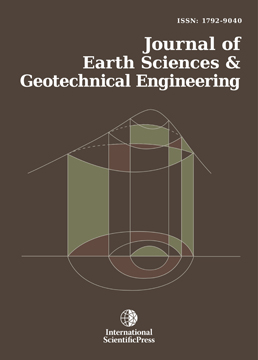Journal of Earth Sciences and Geotechnical Engineering
Geotechnical Properties and Slaking Characteristics of Shales in the Calabar Flank, Southeastern Nigeria
-
 [ Download ]
[ Download ]
- Times downloaded: 14017
-
Abstract
Samples of Ekenkpon and Nkporo shales from the Calabar Flank in southeastern Nigeria were analysed to determine their swelling and slaking characteristics and effect on pavement construction and stability of slopes. Engineering problems reported in areas underlain by the soils include pavement failure and landslides. Results show that for the Ekenkpon shale, Liquid Limit, Plasticity Index and free swell averaged 45%, 14%, and 23% respectively compared to values for Nkporo shale which were 45%, 14%, and 17% respectively. Montmorrilonite, illite and kaolinite are major mineral components of the soils. The undrained cohesion values of 47 to 49kN/m2 and angle of internal friction between 3 and 40 suggest low shear strength. The slake durability index of Ekenkpon shale was 41% compared to 8% for Nkporo shale. The index properties, mineralogy and the slake durability index imply that all the shales are soil-like, have moderate expansivity and are of low shear strength. They are susceptible to expansion on moisture influx, which would trigger pavement fatigues and failures, especially in the peak of rains when excessive precipitation promotes slippage along contact points.
